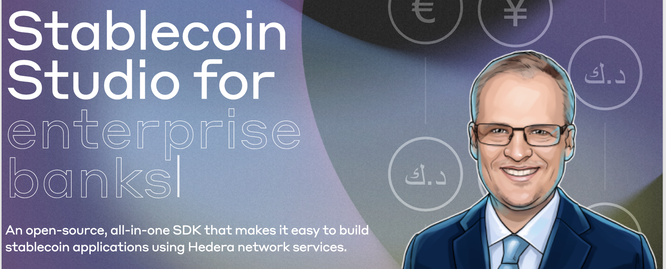|
Monthly we showcase one of our portfolio founders and their unique journeys to entrepreneurship. Each interview is complete with their learnings, stumbles and time hacks...all within 1000 words or about 4 minutes of your time. (The average person can read 1000 words in 4 min 12 seconds). Mance is the Co-Founder and CEO of Hedera Hashgraph. We first met Mance while he was teaching at the US Air Force Academy in Colorado Springs and were eager to invest in him and Leemon when they teamed up to start Swirlds in 2016 which became a Fund I portfolio company. His prior experience includes serving as the Head of Architecture and Labs at Ping Identity, Founder / CEO of two tech startups, the senior executive for product security at a $1.7B revenue organization, Program Manager for a large-scale software program for the Missile Defense Agency, the Course Director for Cybersecurity at US Air Force Academy, and research scientist in Machine Learning at Wright Laboratory. Mance received an MS in Computer Science from the University of Massachusetts and a BS in Computer Science from Mississippi State University.
When you were a kid, what did you want to be when you grew up? Computer Scientist. I got my first computer in the 6th grade because my mother had a garage sale to raise money to buy it. It was a TI 99/4a. The only time I doubted my dream was when I failed Calc in college and doubted it for a hot minute. Was starting Swirlds an "aha moment" or a "gradual realization"? Leemon and I worked for years from 2012-2015, on solving a challenging technical problem - specifically, how can you create a distributed consensus algorithm that simultaneously maximizes both security and performance? It hadn’t been done before. But in 2015, Leemon solved that problem with Hashgraph. He had an “aha moment”. Once we had it, we knew that it was a billion-dollar opportunity. We founded Swirlds shortly after. If you could go back in time and tell yourself some advice when you first started Swirlds, what would it be? My grandfather often told me as a teen, “Don’t worry so much about your troubles. The sun will still rise tomorrow”, which meant that no matter how bad things look today, tomorrow would be another day and it would be ok. At the time he told me, I couldn’t really appreciate the truth of the statement in the way I do today. Sometime “words of wisdom” can help keep you on the correct path, but the most important lessons can only be learned by actually fighting the battles. If I have to provide a specific piece of advice, then I would emphasize the importance of ignoring the naysayers, and I would quote Teddy Roosevelt: “It is not the critic who counts; not the man who points out how the strong man stumbles, or where the doer of deeds could have done them better. The credit belongs to the man who is actually in the arena, whose face is marred by dust and sweat and blood; who strives valiantly; who errs, who comes short again and again, because there is no effort without error and shortcoming; but who does actually strive to do the deeds; who knows great enthusiasms, the great devotions; who spends himself in a worthy cause; who at the best knows in the end the triumph of high achievement, and who at the worst, if he fails, at least fails while daring greatly, so that his place shall never be with those cold and timid souls who neither know victory nor defeat.” Don’t just stand there, get in the fight! What is the best constructive feedback you have gotten and how bad did it hurt first hearing it? When I was a young officer working for the Air Force Senior Executive for Artificial Intelligence, I was given the opportunity to give a presentation to a high-ranking General about my research. In the middle of my presentation the General interrupted me and said “You are using too many words! Use fewer words!” I knew then that I blew it! I remember clearly my boss telling me “Mance, sometimes you are going to fall on your face, and it’s going to hurt. Learn from your mistakes.” What I learned is that life is an exercise in persuasion. I didn’t persuade the General that my work was exciting because I didn’t package the message correctly. Always understand your audience, and tailor the message appropriately. Consider your words before you unleash them on your audience. Why is Texas a great place to start a company? Low taxes, low cost of living. It's just a business-friendly state that has and attracts great talent. By comparison, when I moved from California to Texas, I could visibly feel the freedom of the Texas culture. It's part of the ethos of the government not to be involved in your business or life. Quick Hitters: ● How do you take your coffee? Lungo, not americano, and decaf. ● Favorite time management hack? I am old school. When I am in an intense period, I write a to-do list on paper and manage it actively. It's not a true time hack, but it's a stress-free way to manage during hectic periods. I find that the software tools come with a level of low-grade stress, and as a result of using them, I have less bandwidth. I get huge satisfaction by creating a list and then checking off the boxes. ● Last book you read? Return of the God Hypothesis, by Stephen Meyer ● Favorite podcast or blog? I don’t frequent podcasts or blogs. ● Free time (not that you have any) but if you did or when you do, how do you spend it? Working on my ranch doing manual labor. Like cutting trees, mowing, or bush-hogging the fields. Comments are closed.
|


